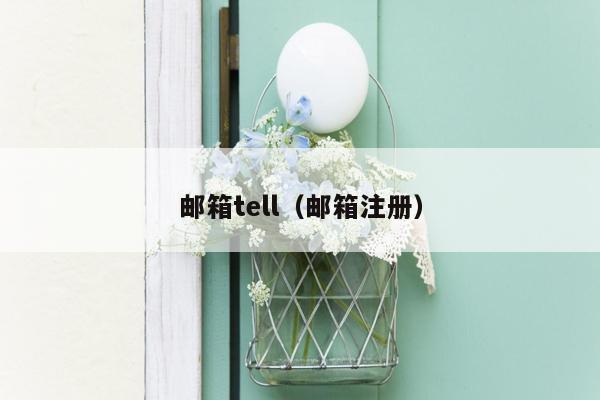英文邮件开头im writing to tell
第二个 因为这句话的意思是我写这封信是想告诉你,而你写下这句话的时候,你正在开始写这封信,所以要用现在进行时.
英语:“你能告诉我你的邮箱吗”怎么说?
Can you inform me of your mailbox?上上楼说得对,可是不管是CAN还是COULD都是一个意思,所以用哪种都是可以的

email和tell 发音相同吗?
email和tell中字母e发音不同。
分析:email中字母e发/i:/,而tell中e发/e/。
发邮件的称呼
发邮件的称呼如下:
1、GREETINGS问候语
正式:
Dear Sir or Madam,亲爱的先生或女士,
To whom it may concern: (especially AmE)敬启者:(特别是美式英语)
Dear Mr/ Ms Jones,尊敬的琼斯先生/小姐,
Dear Dr Smith,亲爱的史密斯博士,
注:一般不用收件人的名字(除姓氏之外)。用Miss或Mrs称呼女人是不合适的,因为你不知道她是否结婚了。
非正式:
Hi Dennis,嗨,丹尼斯,
Hello Claire,你好,克莱尔,
Dear Mum,亲爱的妈妈,
扩展资料:
一、REASON FOR WRITING / REPLYING写信/回复的理由
正式:
I am writing to make a reservation/ to apply for the position of…/ to confirm my booking/ to ask for further information about …
我写信是为了预定/申请……的职位/确认我的预订/询问有关的进一步信息…
I am writing with regard to the sale of …/ to the complaint you made on 29th February
我写的是关于...的销售情况/2月29日你提出的投诉。
Thank you for your e-mail of 29th February regarding the sale of… / concerning the conference in Brussels.
感谢您2月29日关于...销售/关于布鲁塞尔会议的电子邮件。
半正式/非正式:
Just a quick note to invite you to…/ to tell you that…
只是一个简短的便条邀请你/告诉你…
This is to invite you to join us for...
这是邀请你加入我们…
Thanks for your e-mail, it was wonderful/great to hear from you.
谢谢你的电子邮件,收到你的来信真是太好了。
二、OFFERING HELP / GIVING INFORMATION提供帮助/给出信息
正式:
We are happy to let you know that your article has been selected for publication.
我们很高兴地通知您,您的文章已被选定出版。
I am glad to inform you that we will be holding our annual conference in Brussels on 20 September 2014.
我们遗憾地通知您,由于天气恶劣,演出取消了。
We are willing to arrange another meeting with the CEO.
我们愿意与董事长再安排一次会晤。
We would be glad to send you another statement if necessary.
如有必要,我们将另发一份声明。
Should you need any further information/assistance, please do not hesitate to contact us.
如果您需要进一步的信息/帮助,请务必与我们联系。
非正式:
I’m sorry, but I can’t make it tomorrow. (= I can’t come tomorrow.)
对不起,我明天去不了。(我明天不能来。)
I’m happy to tell you that John and I are getting married next month.
我很高兴地告诉你,约翰和我下个月就要结婚了。
Would you like me to come early and help you clear up the place?
你想让我早点来帮你打扫这个地方吗?
How about I come and help you out?
我来帮助你走出困境怎么样?
三、ENDING结束语
正式:
I look forward to hearing from you.我期待着你的回信。
I look forward to hearing when you are planning to visit our town.
我期待着收到你计划访问我们城镇的回信。
非正式:
Hope to hear from you soon.希望很快收到你的来信。
I’m looking forward to seeing you.我盼望见到你。
四、CLOSING FORMULA落款
正式:
Yours faithfully, (when you start with Dear Sir/ Madam,)
您忠实的(当你开始于亲爱的先生/女士,)
Yours sincerely, (when you start with the name e.g. Dear Ms Collins)
您真诚的(当你以名字开始,例如亲爱的柯林斯女士)
Sincerely Yours, (AmE)谨上,(美式)
Sincerely, (AmE)真诚地,(美式)
Yours Truly, (AmE)敬上,(美式)
非正式:
Love,爱你的,
Thanks,感谢,
Take care,珍重,
Yours,你的,
Best regards, (semi-formal, also BR)祝你好运,(半正式,同样适用于英式英语)
还有一点要记住的是,在正式信函中很少使用缩写,所以记住写全称的“I do not”或“they cannot”,而不是缩写的“I don’t”或“they can’t”等等。
你能把你的邮箱地址告诉我吗?用英语怎样写
你能把你的邮箱地址告诉我吗?
-
Could
you
tell
me
your
address
?
满意请采纳,谢谢
能告诉我你的邮箱地址吗?用英语怎么说
Can/Could you tell me your email adress?
更委婉的:May I take/have your email adress?





语怎么说Can/Could you tell me your email adress?更委婉的:May I take/have your email adress?
步的信息/帮助,请务必与我们联系。非正式:I’m sorry, but I can’t make it tomorrow. (= I can’t come tomorrow.)对不起,我明天去不了。(我明天不能来
英文邮件开头im writing to tell第二个 因为这句话的意思是我写这封信是想告诉你,而你写下这句话的时候,你正在开始写这封信,所以要用现在进行时.英语:“你能告诉我你的邮箱吗”怎么说?Can you info
所以记住写全称的“I do not”或“they cannot”,而不是缩写的“I don’t”或“they can’t”等等。你能把你的邮箱地址告诉我吗?用英语怎样写你能把你的邮箱地址告诉我吗?-Couldyoutellmeyoure-mailaddress?满意请采纳,谢谢
w that your article has been selected for publication.我们很高兴地通知您,您的文章已被选定出版。I am glad to inform you that we will be